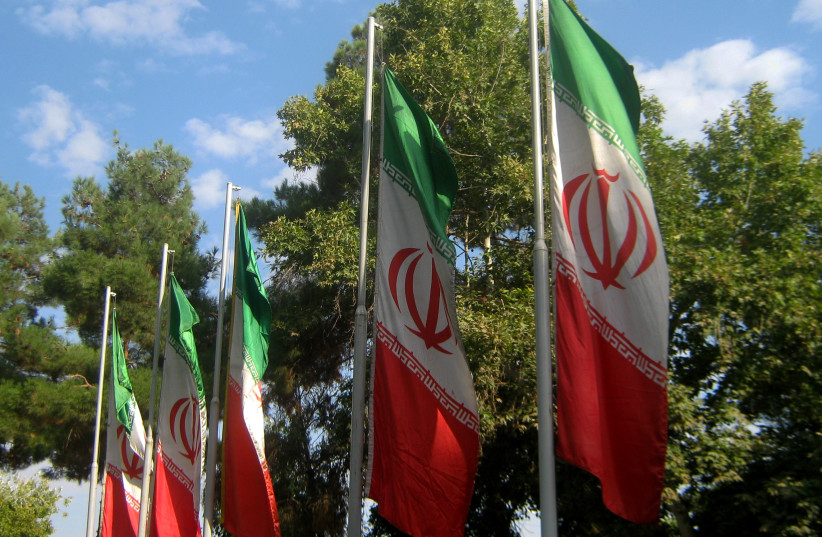An Iranian tanker carrying a million barrels of crude oil arrived in Venezuela over the weekend, Reuters reported.
“The cargo is the third of Iranian crude supplied by Iran’s Naftiran Intertrade Co (NICO) to Venezuela’s state-run oil firm PDVSA following a supply contract providing the South American nation with lighter crude. Venezuela has been processing Iranian oil in its refineries,” the report said.
The tanker is named the Sonia I, and it departed Iran in May, according to the report.
“Two other Iran-flagged tankers, the very large crude carriers (VLCCs) Dino I and Silvia I, had arrived last month at Venezuelan ports carrying the first cargoes of Iranian crude for Venezuela. They later loaded Venezuelan heavy oil and fuel for Iran in exchange, according to the tracking data and PDVSA’s schedules,” the report noted.
The recent arrival coincides with the visit of Venezuela’s President Nicolás Maduro to Turkey, Iran and now Kuwait. Maduro is trying to expand Venezuela’s influence in the region. An authoritarian and thuggish leader, he is also an enemy of the US. The deals with Iran will help Tehran end its isolation.
“In an elaborate handover ceremony conducted on June 11, Iran reported that it delivered its second domestically built oil tanker,” the Maritime Executive website reported. “The unnamed vessel, which is only referred to in the reports as ‘Aframax 2,’ was built in defiance of international sanctions and delivered to Venezuela during a visit by the Venezuelan President Nicolás Maduro to Iran.”
Meanwhile, Iran’s semiofficial Fars News Agency highlighted the importance of Iran-Venezuela strategic cooperation. Tehran already sells drones to Caracas, and the countries work together as a kind of anti-Western authoritarian axis. They dislike the US, Israel and other democracies.

The 20-year agreement between Iran and Venezuela is yet another agreement for Tehran after it signed a deal with China for 25 years of cooperation.
“The Republic of Venezuela, with an area of 916,000 square kilometers, is located in the shape of a large triangle in North and South America and has an important strategic position due to its barrier between Latin America and Central America and its rich natural resources,” the Fars report said. “It is bordered by Colombia to the west, Brazil to the south, and the Atlantic and Caribbean Seas to the north. The country has a population of 28 million.”
Iran’s economy is dependent on oil and gas, the report said, adding that “Venezuela’s total oil production in 2021 will be about 554,000 barrels per day and by 2030 will reach 715,000 barrels per day. In addition, estimates [note] that Venezuela’s gas production will reach 24.7 billion cubic meters in 2021 and 29.6 bcm by 2030.”
Strategic cooperation
THERE ARE five opportunities for strategic cooperation between Iran and Venezuela, the Fars report said. They include upgrading Venezuela’s refineries, which will supply domestic consumption.
The countries can work on joint cooperation against sanctions, the report said.
“Venezuela’s refining sector is suffering from chronic wear and tear due to sanctions imposed on the country, and Venezuela’s domestic companies do not have the capacity to upgrade refineries,” it said.
Iran believes it can upgrade Venezuela’s capacity to refine oil, the report said.
“By upgrading its refineries, Iran can refine some of its crude oil in its refineries and sell it in the Latin American market because its production is less than its refining capacity,” it said.
In addition, Iran thinks it can establish infrastructure for a “joint Iranian-Latin American study hub in the two countries, which will continuously review and follow up the fields of cooperation,” the report said.
Tehran knows that Caracas is affected by US sanctions. That means Iran thinks the two countries can share their experience in overcoming them.
“Venezuela has the most proven oil reserves in the world, but its production is not commensurate with the size of its reserves,” the report said, adding that “Iran and Venezuela are two of the founding members of OPEC and have many common political views, so cooperation between the two countries in OPEC can be one of the areas of cooperation between the two sides.”
The point Tehran is making is that it can increase work with Caracas, and in doing so, it might be able to thwart the US, increase the trade and economy of both countries, reduce their isolation and spread their influence. This would be bad news for the US, Israel and the region because both Iran and Venezuela work against Jerusalem and Washington, and both countries may partner with Russia, Turkey and China as part of an authoritarian new world order.
“Argentine authorities have grounded an Iran-linked Venezuelan Boeing 747 cargo plane, a local opposition lawmaker and Iranian state media said on Sunday, in an unfolding drama that is throwing a spotlight on political undercurrents in Latin America,” Reuters reported Sunday.
“The Emtrasur cargo plane, sold to Venezuela by Iran’s Mahan Air a year ago according to the Iranian airline, arrived in Buenos Aires on June 8, flight tracking data show,” the report said. “It was then seized by authorities, the lawmaker and Iranian media said.”
